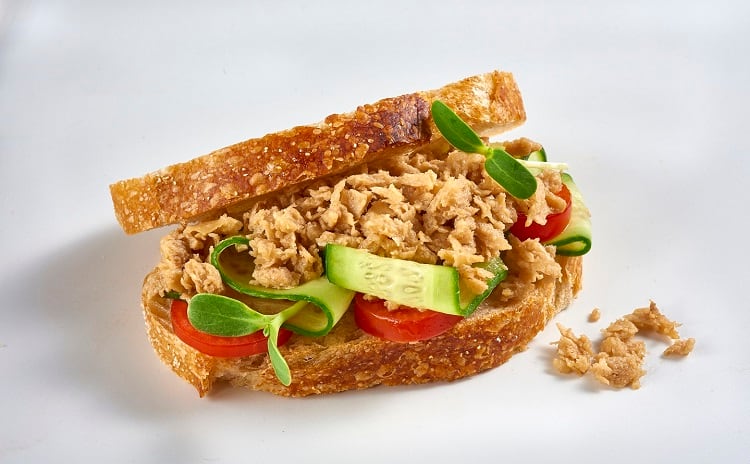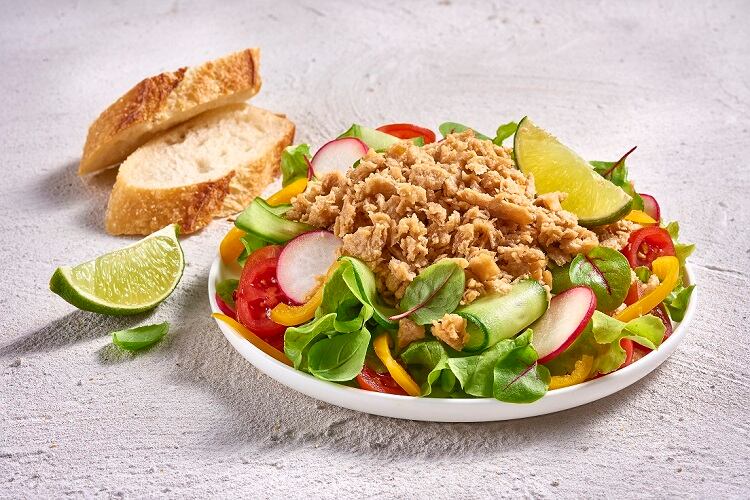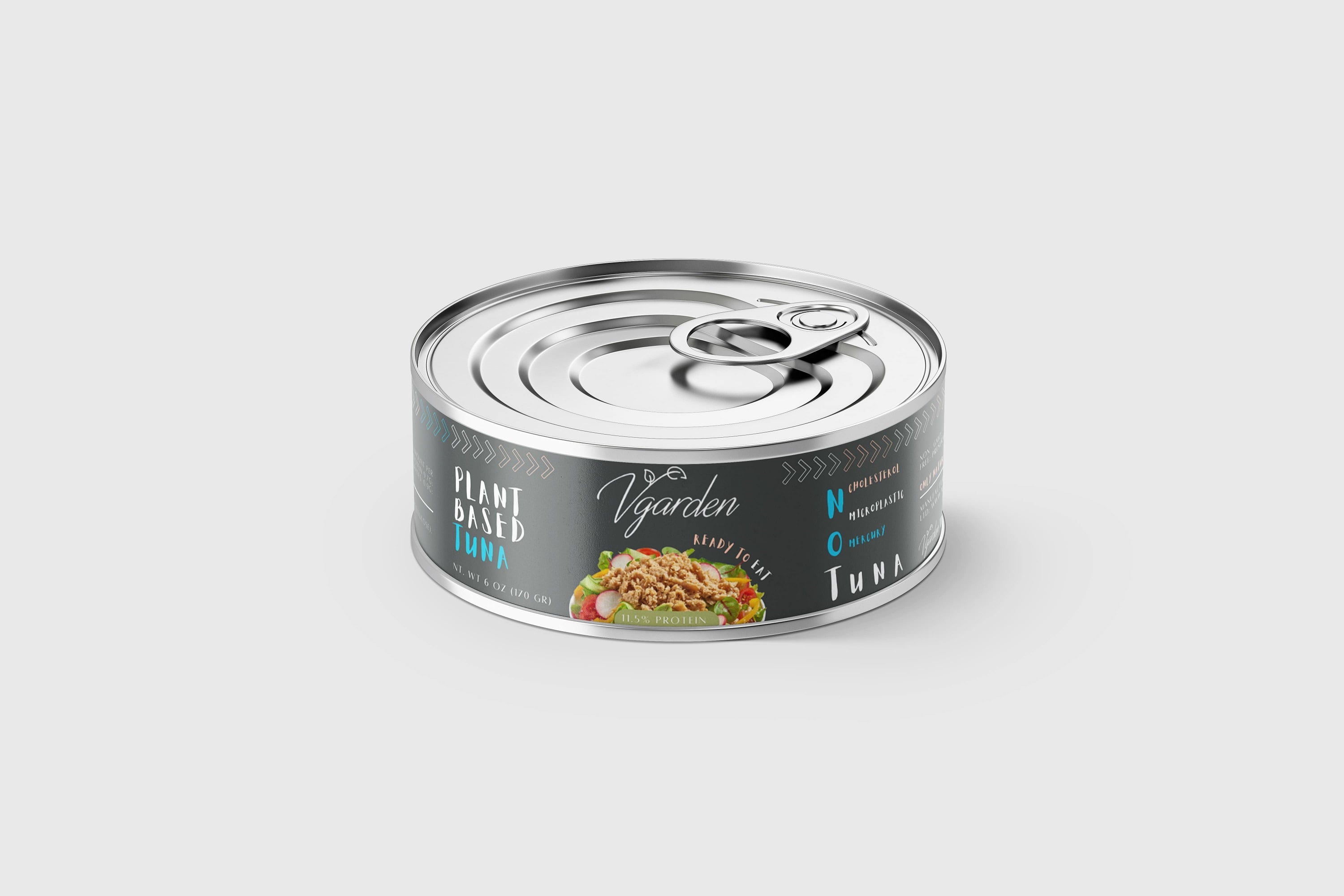Tuna is amongst the most popular, if not the most consumed, fish in the world. According to Fortune Business Insights, the global tuna fish market is expected to grow from $41.06bn (€38.21bn) in 2022 to $49.70bn in 2029.
Leading buyers of canned tuna, considered an affordable and convenient source of protein, include Europe and Asia, with growing markets in South America and the Middle East.
However, not all tuna fishing is environmentally sustainable. “Aquaculture and the overfishing of this high-in-demand fish has had a devastating effect on their numbers to the point that it has put several species, such as the yellowfin and the Atlantic Bluefin, on the edge of extinction,” according to Tom Rothman, head of global sales at Israeli plant-based start-up Vgarden.
“This not only poses problems in terms of food security but also negatively impacts the delicate and fragile balance of the marine environment.”
After 12 months of R&D, the start-up has developed a plant-based alternative to canned tuna it believes will help ‘turn the tide’ on unsustainable fishing practices and contribute to the restoration of the ocean’s wild tuna populations.
Achieving the texture and smell of tinned tuna
The start-up’s aim was to recreate the taste, texture, and smell of tinned tuna with plants. This was the R&D teams greatest challenge, Omer Eliav, chief of R&D and Vgarden co-founder explained.
“The biggest challenge in creating an identical tinned tuna is to provide the complete sensory experience of taste, texture, and smell. We want to make it enticing to all consumers, not just vegans,” he told FoodNavigator.
After ‘a lot’ of trials and tastings, the start-up managed to achieve the ‘exact look and feel’ of tuna. “It was also important to clean up the label from any unwanted additives and make sure it housed just a short list of ingredients,” he added.
Another ‘major’ challenge in creating plant-based tuna, according to the R&D lead, lies in making it scalable, so that the product could be marketed at a competitive price. “We examined a lot of ingredients and processes to create the product, but some of them were too expensive or could not be scaled for mass production.”

Vgarden settled on pea protein as its primary source of plant-based protein. Together with the company’s ‘unique process’ and choice of ingredients, the pea protein helped the start-up achieve the desired texture, Eliav explained.
“We use extruded vegetable proteins. These go through our proprietary process which gives them the right taste and texture to mimic the original canned tuna. Recently, we filed a patent for the innovative formula and process.”
Flavour and nutritional profile
The start-up claims to have achieved a ‘unique marine taste’ in its plant-based tuna, similar to its conventional counterpart. Unlike other plant-based seafood alternatives, this was not achieved with algae – at least, not yet.
“The unique marine taste is achieved as a result of a blend of natural flavourings and the unique manufacturing method that successfully infuses it into the plant ingredients,” we were told.
The company is currently exploring the possibility of infusing algae oil extract, however, and initial tests and returning ‘promising results’. “We are definitely planning to take this research further,” revealed Eliav.

Vgarden’s tuna analogue contains a total protein content of between 11.2-14% (before and after filtration). Conventional tuna is even higher in protein: a can of tuna provides an estimated 42g of complete protein.
Other ingredients in Vgarden’s alternative include fibres and sunflower oil. Another health benefit, noted the company, is that being sourced outside of the marine ecosystem means its fish-free tuna contains no toxic metals, microplastics, and other ocean pollutants.
“One of our first development goals was to create a highly nutritious and sustainable product,” explained Eliav. “As canned tuna is famous for its high protein content, this was our starting point.”
The result is a ‘perfect tuna-eating experience’, we were told. “It is high in protein and contains only seven natural ingredients. We are now working on fortifying our novel tuna with Omega-3 fatty acids. Our vegan tuna flakes are canned in sunflower oil as is commonly used in traditional canned tuna.”
Private-label expansion
Vgarden is selling its tuna-free product private-label. It is already being rolled out into retail and foodservice sectors and is available in two packaging formats: pouches for chilled storage and tins to give the ‘full authentic tuna experience’.
To facilitate non-chilled storage, the R&D team developed a plant-based tuna that can be canned and sterilised at high temperatures, yet still retain its flavour and texture, noted the company.
The plant-based tuna is designed to be integrated into any traditional tuna-based recipe, such as tuna mayo sandwiches, salads, pastas, sushi, and pizza. “Many food outlets are turning to our tuna analogue to create a classic tuna niçoise salad or a tuna pasta that will give its discerning flexitarian consumers the full experience of the real thing,” noted the start-up’s CEO Ilan Adut.
The company is currently selling its product ‘all over’ Israel, as well as in a few selected countries in Europe, Australia, and North America, and expect to launch it in the eastern Asia later this year.




